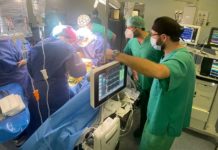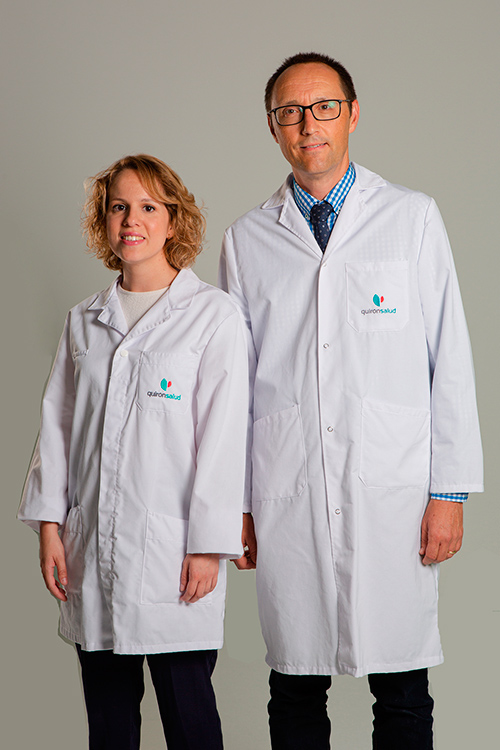The incidence of the disease has doubled in the past fifteen years.
Quirónsalud Alicante launches a new unit, specialised in the treatment of diabetes and its associated illnesses. This multidisciplinary unit is made up of a multidisciplinary team, coordinated by the Endocrinology Service, which includes medical professionals from the fields of endocrinology, angiology and cardiology, as well as nursing professionals, in order to support diabetic patients so that they can maintain an exhaustive control of their disease.
Diabetes mellitus is caused when the organism cannot produce enough insulin, or does not use it efficiently. The two most common types of diabetes mellitus are type-1 diabetes mellitus, which mainly presents in childhood or youth, and is due to the destruction of the pancreas by an autoimmune process, due to which the pancreas does not produce insulin, and patients’ bodies need to be given insulin by injection; and “type-2 diabetes mellitus”. This second type of diabetes, more common than the first type, explains Doctor Ángel Luis Abad, Endocrinologist and Coordinator of the Diabetes Unit at Quirónsalud Alicante, “usually presents after forty-five years of age, and is due to the fact that the organism becomes resistant to the action of insulin, and can’t use it in an adequate manner. Its origin is often related with excess weight and obesity, a lack of exercise and inadequate nutrition.”
The increase of excess weight and obesity in Spain has doubled the number of type-2 diabetes in the past 15 years and, as Doctor Carlos Sala, Head of the Obesity and Nutrition Unit at Quirónsalud Alicante and Valencia states, “it already affects 15% of the population, and its relation with obesity is so strong that it has led to the rise of a new term: diaglobesity.”
One of the negative consequences of this disease is that, often, it does not have any symptoms when its starts. “This leads to a late diagnosis of the disease, after it has affected different organs, and develops neurological or cardiovascular complications, or kidney diseases. That is why it’s important to find a team specialised in its treatment at the appearance of the first symptoms, so the disease can be treated in a holistic manner,” explains the specialist.
In order to prevent it, Doctor Abad recommends giving up poor eating habits and returning to a Mediterranean diet, based on an abundant consumption of fruits, vegetables, white meats, fatty fish and olive oil, all accompanied by daily physical exercise.
Metabolic Surgery, a New Path for the Treatment of Diabetes and Obesity
Metabolic surgery for weight loss has been, to this date, the surgical technique of choice for the treatment of patient with a body-mass index (BMI) above 35, if the patient presents comorbidities such as diabetes, hypertension, dyslipidaemia, etc.
cognibiotics However, “due to the extraordinary results of this technique and the worldwide diabetes and obesity epidemic, which is starting to be called diaglobesity, it has started being used, with great success, to treat diabetic patient or patients with type-I obesity, in other words, patients that are not yet morbidly obese, but are diabetic,” says Doctor Carlos Sala.
As for the benefits of this intervention, “90% of the patients intervened have been able to stop insulin injections, and the rest are able to control the disease with the help of medications. Additionally, this surgery helps patients lose a large amount of weight and reach an optimal weight, as long as they incorporate healthy habits and exercise in their daily routines. Many studies have proven that these measures achieve, in addition to an improved quality of life, an increase of ten years in the average lifespan of an obese person.”































